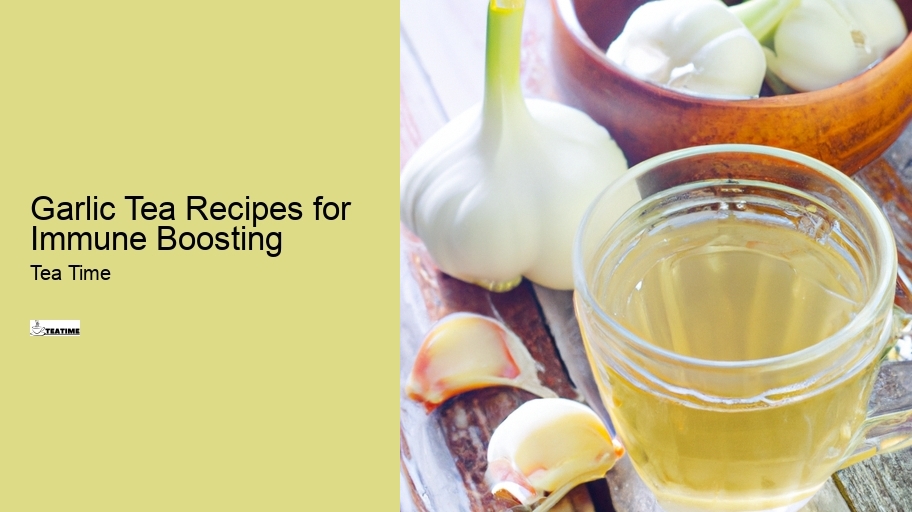

Garlic tea's benefits extend beyond internal health to include skin health. The antioxidants and anti-inflammatory compounds in garlic can have a positive impact on skin conditions. Drinking garlic tea regularly may help in reducing acne, soothing skin inflammation, and promoting a healthy complexion.
The antimicrobial properties of garlic also play a role in skin health. Allicin These properties can aid in fighting bacteria and infections, potentially reducing the occurrence of skin blemishes and irritations. Additionally, the antioxidants in garlic tea help combat oxidative stress, a factor in premature skin aging.
While garlic tea can be a supportive element in skin care, it's also important to maintain a holistic approach that includes a balanced diet, proper hydration, and regular skin care practices. As with any natural remedy, individual experiences may vary, and it's advisable to consult with a healthcare professional for personalized advice.
Enhancing the flavor of garlic tea can make it a more enjoyable and versatile beverage. Adding spices like cinnamon, cloves, or cardamom can introduce a warm, aromatic dimension to the tea. These spices not only improve the taste but also bring additional health benefits, such as improved digestion and anti-inflammatory effects.
Experimenting with different combinations of spices allows you to customize your garlic tea to your liking. For a more refreshing twist, consider adding a slice of lemon or a sprig of mint. These additions can brighten the flavor and add a refreshing element to the tea.
Personalizing your garlic tea with spices and other flavor enhancers can transform it from a health drink into a delightful beverage. Respiratory Health It becomes a versatile tea that can be tailored to suit different moods and occasions, making it a staple in your beverage repertoire.
Garlic tea can be an effective natural remedy for stress relief. The soothing properties of a warm cup of tea, combined with garlic's natural compounds, can help reduce stress and promote relaxation. Drinking garlic tea may aid in calming the nervous system and reducing the physical and psychological effects of stress.
The antioxidants in garlic tea also contribute to its stress-relieving properties. Organic Farming They combat oxidative stress in the body, which can be exacerbated by chronic stress. This helps in maintaining a balance and supporting overall mental well-being.
Incorporating garlic tea into your daily routine can be a simple and natural way to manage stress. Its calming effects can provide a moment of tranquility in a busy day, making it a valuable addition to a stress management regimen.
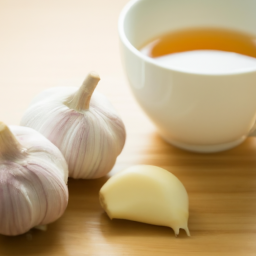
While garlic tea is generally safe for most people, it's important to consider some safety aspects. Those with garlic allergies or intolerances should avoid it. Brewing Techniques Additionally, garlic can interact with certain medications, particularly blood thinners and drugs for hypertension. It's crucial to consult with a healthcare professional before adding garlic tea to your regimen, especially if you are on medication.
Consuming garlic tea in moderation is key. Excessive intake may lead to digestive discomfort, including heartburn or upset stomach. It's also advisable for pregnant or breastfeeding women to consult with a healthcare professional before consuming garlic tea.
By being mindful of these safety considerations, you can enjoy the benefits of garlic tea without adverse effects. It's all about balancing the consumption with your individual health needs and circumstances.
Garlic tea can play a supportive role in diabetes management. Studies suggest that the compounds in garlic, particularly allicin, may have a positive effect on blood sugar levels. Regular consumption of garlic tea might help in regulating blood sugar, making it a beneficial addition for those managing diabetes.
The antioxidant properties of garlic also contribute to its potential benefits for diabetes. These properties can help combat oxidative stress, a factor associated with diabetes complications. Garlic tea's anti-inflammatory effects can further support overall health in individuals with diabetes.
However, it's important to use garlic tea as a complement to, not a replacement for, prescribed diabetes treatments. Monitoring blood sugar levels and consulting with a healthcare professional is essential when incorporating garlic tea into a diabetes management plan.
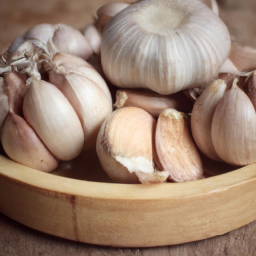
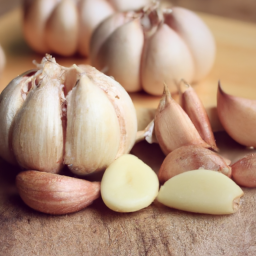
Garlic tea can be particularly beneficial during certain seasons. In the colder months, it can provide a warming effect and help boost the immune system, making it a great choice during flu season. The antibacterial and antiviral properties of garlic are helpful in combating seasonal colds and infections.
In the spring, when allergies are prevalent, garlic tea's anti-inflammatory properties can provide relief from allergic reactions. Drinking garlic tea regularly during this time can help alleviate allergy symptoms and support respiratory health.
During the summer, garlic tea can be enjoyed cold as a refreshing beverage. This can be a unique way to stay hydrated and still reap the health benefits of garlic. Heart Health Adapting the use of garlic tea to suit different seasons can maximize its health benefits year-round.
Garlic tea can be a beneficial addition to an athlete's diet. The anti-inflammatory properties of garlic can aid in muscle recovery and reduce soreness post-exercise. This can be particularly helpful for athletes undergoing intense training regimens.
The immune-boosting properties of garlic are also beneficial for athletes, who may be more susceptible to infections due to intense physical exertion and stress on the body. Regular consumption of garlic tea can help strengthen the immune system, keeping athletes healthy and ready for their training.
Additionally, the potential cardiovascular benefits of garlic, such as improved blood circulation and heart health, can enhance athletic performance.
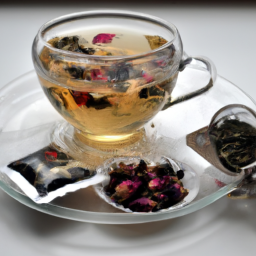
Garlic tea offers a range of health benefits due to its rich content of antioxidants and compounds like allicin. It's known for boosting the immune system, reducing inflammation, aiding in heart health by managing blood pressure and cholesterol levels, and it may also have antibacterial and antiviral properties. Additionally, it can aid in digestion and respiratory health, and some suggest it might help in weight management.
To make garlic tea, start by peeling and lightly crushing 2-3 cloves of fresh garlic to release their oils. Steep the crushed cloves in a cup of hot water for about 5-10 minutes. Strain the garlic and add lemon or honey to taste, if desired. Adjust the amount of garlic and steeping time according to your taste preference.